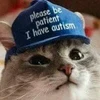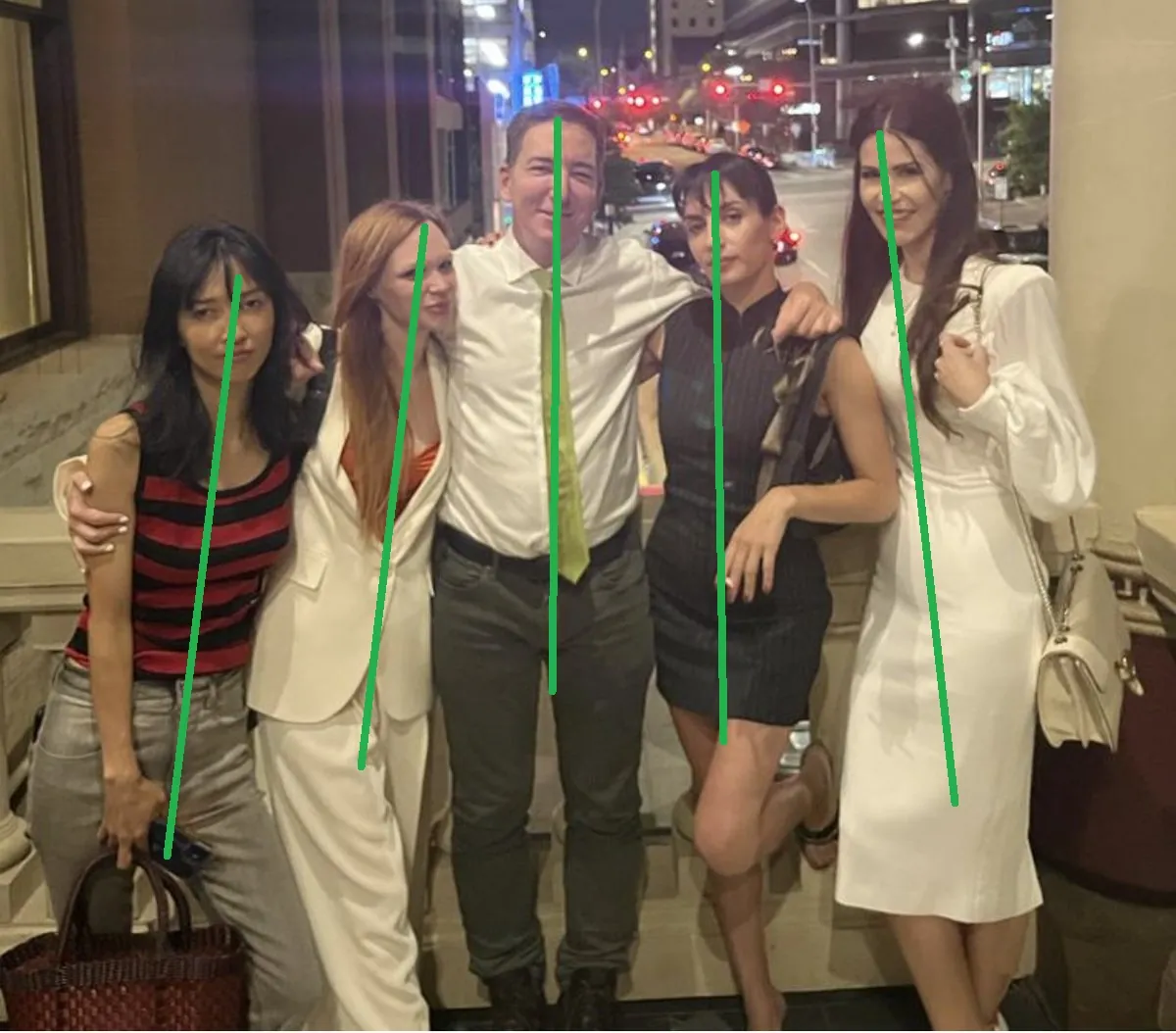- 2
- 8
- 1
- 1
- 4
- 11
- 1
- 3
- 5
- 6
Editor's note: This post originally published on May 9 and has been updated.
"A worm ... got into my brain and ate a portion of it and then died."
These are words nobody wants to say.
They were spoken by a U.S. presidential candidate and President-elect Donald Trump's nominee to run the Department of Health and Human Services. According to a 2012 deposition, uncovered and reviewed by The New York Times in May, Robert F. Kennedy Jr. said he sought medical attention after experiencing mental fogginess and memory loss. Eventually, he said, a doctor helped him determine a brain abnormality found on a scan was caused by a worm. He now tells The Times he has recovered with no long lasting consequences.
The story has created a lot of buzz in the world of politics. But it's not just a story about one politician's health history. The World Health Organization estimates over a billion people are infected with parasitic worms. The implications are often serious and lifelong.
NPR spoke with Francisca Mutapi, a professor of global health infection and immunity at the University of Edinburgh who has studied parasites for 25 years. She shared her insights on what might have happened to RFK Jr. — and the toll that parasitic worms take around the world. The conversation was edited for length and clarity.
Let's start with RFK Jr. What we know about his particular case is vague. Do you have an instinct about what this worm might have been and how he might have been infected with it?
So I have absolutely no idea about his case. From what I have read, it might have been a particular infection known as Taeniasis. And Taeniasis is an infection you get from a tropical parasitic worm — the easy name is tapeworms [which can be carried by pigs].
What happens is when you're infected with a tapeworm, usually from raw pork or undercooked pork, you ingest the eggs and those eggs will go on to hatch. And in their larvae form, they will spread throughout the body and, depending on what tissues in the body they end in, they cause a disease called cysticercosis.
Where might these larvae travel in the body and what harm can they bring?
For example, if the larvae end up in the eyes, they can cause blurred vision and blindness. If they end up in the muscle, they can cause weak muscles. But if they end up in any part of your central nervous system – your spine or brain – then they cause a form of disease that's called neurocysticercosis.
And this particular form of the disease will range depending on your immune system and your health status and where exactly those larvae have ended up. It can cause headaches and seizures. For example, the disease is the leading preventable cause of epilepsy worldwide. It can also cause issues with cognition. And some people have problems with balancing problems, with lack of attention and also confusion. Excess fluid in the brain can actually make this a very dangerous condition. And in very, very rare cases, people do die from neurocysticercosis.
How likely is this in a U.S. context?
What tends to happen is that you are exposed to the parasites when traveling to areas where this disease is widespread. So Asia, for example, South America and in some parts of Africa. In the United States, according to the Centers for Disease Control and Prevention, you have about 1,000 new cases hospitalized with cysticercosis every year.
What are the treatment options?
Well, first of all, these diseases are preventable with things like good food hygiene — making sure pork is well-cooked — good hand-washing and good sanitation, of course.
But if you fail to prevent [the disease], then it is treatable and the drugs work very well. Two widely used drugs that kill the larval stages are praziquantel and albendazole. They are usually good for doing two things: They can reduce or kill the parasites, and they can also reverse some of the pathological manifestations of the disease, such as inflammation. In extreme cases, you have to have surgery.
Tell us more broadly about the global burden of parasites and particularly worms?
Diseases caused by parasitic worms are mostly part of a group of diseases called neglected tropical diseases and about 1.7 billion people are affected by NTDs.
In Africa alone, for example, we have over 200 million people who are affected by bilharzia, a disease caused by parasitic worms [that can trigger a series of health problems from anemia to blood in your urine to cognitive issues].
So it's a huge burden. If you take all the children in the world that have bilharzia and get them to hold hands, they would encircle the world one and a half times. That is the burden of just one of the 21 neglected tropical diseases.
While we have few deaths [from diseases caused by parasitic worms], what we do have is a huge impact on day-to-day general health and ability to function.
So can you talk about the consequences of cysticercosis – or other parasitic worms?
Think about having an epileptic seizure. You cannot hold down a job easily or long-term if you're having epileptic seizures. If [the worm goes to your eye and] impacts your vision, that affects the jobs you are able to do and your safety. If you have problems with balance, it makes it difficult to move around. So that the quality of life becomes really reduced.
Similarly bilharzia in my mother tongue — Shona from Zimbabwe — is called the disease of cognitive function. Some of the classic symptoms are children who are tired, have poor memory and poor cognition. One of the big improvements that we see whenever we treat children and we catch the disease early is that the academic performance goes up as well as their physical activity.
What is being done to combat this globally – and is it enough?
A lot is being done, but a lot more can be done. We have what we call preventative chemotherapy, which is treatment of populations at risk of disease — you give them the drugs and they catch the infection before it causes the serious disease manifestations. These drugs are mostly donated by international pharmaceutical companies.
We now need to accelerate these efforts so we can try and eliminate these kinds of diseases as quickly as possible. We can do that by increasing treatments. But we can do that by also being more innovative in our interventions. We can develop vaccines, for example.
RFK Jr.'s spokesperson has said he contracted the parasite by traveling to places in Africa, South America, and Asia in his role as "an environmental advocate." Is there anything people can do to protect themselves in these parts of the world?
In areas where we do have cysticercosis, you can improve the hygiene so that people do not make contact with the fecal matter or the urine of pigs. That kind of intervention is very, very cheap but very, very effective.
And as you note, even though the RFK JR. story is a bit ... unusual ... it does offer an opportunity to talk about the global problem of parasitic worms.
- 13
- 25
Swedish Gender Equality Minister Paulina Brandberg has such an acute phobia of bananas that her staff must work around the clock to ensure that she never has to lay eyes on the yellow fruit, Swedish newspaper Expressen has reported.
In a social media post in 2020, Brandberg admitted that she has "the world's weirdest phobia of bananas." Her admission was dismissed as an exaggeration until Wednesday, when Expressen published leaked government emails revealing the true extent of her fear.
Before Brandberg attended a lunch at the Norwegian Judicial Agency in February, her cabinet secretary emailed the agency: "Paulina Brandberg has a strong allergy to bananas, so it would be appreciated that there are no bananas in the spaces where she will be staying."
Ahead of a meeting with a local authority later that month, Brandberg's secretary was more blunt, telling municipal staff: "no bananas are allowed on the premises either."
When the speaker of Sweden's parliament, Andreas Norlen, invited Brandberg for coffee in September, he too received an email informing him of the minister's banana "allergy."
"Thank you, there will probably be a cake with the coffee and we'll make sure it doesn't contain banana," Norlen's office replied. "However, we have fruit baskets with bananas in adjacent spaces and passage rooms. Is it enough if we put these away in the morning of the same day?"
"It will be brilliant if you can put them away in the morning of the same day," Brandberg's secretary responded.
While her secretary describes the phobia as an allergy, Brandberg told Expressen that "it is something that I get professional help with."
"It's like a kind of allergy, you could say," she told the newspaper.
Bananaphobia is not recognized by most medical scientists as a legitimate condition, and is lumped in with the generic phobia of "certain foods" in the International Classification of Diseases. However, anecdotal evidence suggests that it is a real, if rare, phenomenon. On the website of Mind, a British mental health charity, one bananaphobia sufferer described how "seeing a banana in real life makes me extremely anxious, I hyperventilate and feel petrified."
"I know bananas can't hurt me but for some reason I am full of fear whenever I see or smell them," she wrote.
Following the publication of Expressen's article, Brandberg's fellow MP Teresa Carvalho also came out as a bananaphobe. "I suffer from the same ailment," the Social Democrat wrote on X. "We may have had many tough debates about conditions in working life, but on this issue we stand united against a common enemy."
!nooticers someone ping foidmoment 
- 2
- 4
- 2
- 6
- 2
- 6
- 15
- 37
- 9
- 23
- 5
- 47
Elon Musk and Vivek Ramaswamy are asking Americans who are "high-IQ small-government revolutionaries" and willing to work over 80 hours a week to join their new Department of Government Efficiency – at zero pay.
In a new X post on Thursday that doubled as a job announcement and another one of Musk's trolling attempts, the account for the newly formed Doge wrote: "We don't need more part-time idea generators. We need super high-IQ small-government revolutionaries willing to work 80+ hours per week on unglamorous cost-cutting."

- 3
- 10
- 8
- 23
- 2
- 13
- collectijism : lol he's dollar store Joe Rogan
- DickButtKiss : That sucks - blows my mind when I see dramatards moralstragging about Sandy Hook and crisis actors lol
- 88
- 102
Infowars is being shut down now! pic.twitter.com/nb4loGvL12
— Alex Jones (@RealAlexJones) November 14, 2024
Today we celebrate a new addition to the Global Tetrahedron LLC family of brands. And let me say, I really do see it as a family. Much like family members, our brands are abstract nodes of wealth, interchangeable assets for their patriarch to absorb and discard according to the opaque whims of the market. And just like family members, our brands regard one another with mutual suspicion and malice.
All told, the decision to acquire InfoWars was an easy one for the Global Tetrahedron executive board.
Founded in 1999 on the heels of the Satanic "panic" and growing steadily ever since, InfoWars has distinguished itself as an invaluable tool for brainwashing and controlling the masses. With a shrewd mix of delusional paranoia and dubious anti-aging nutrition hacks, they strive to make life both scarier and longer for everyone, a commendable goal. They are a true unicorn, capable of simultaneously inspiring public support for billionaires and stoking outrage at an inept federal state that can assassinate JFK but can't even put a man on the Moon.
Through it all, InfoWars has shown an unswerving commitment to manufacturing anger and radicalizing the most vulnerable members of society—values that resonate deeply with all of us at Global Tetrahedron.
No price would be too high for such a cornucopia of malleable assets and minds. And yet, in a stroke of good fortune, a formidable special interest group has outwitted the hapless owner of InfoWars (a forgettable man with an already-forgotten name) and forced him to sell it at a steep bargain: less than one trillion dollars.
Make no mistake: This is a coup for our company and a well-deserved victory for multinational elites the world over.
What's next for InfoWars remains a live issue. The excess funds initially allocated for the purchase will be reinvested into our philanthropic efforts that include business school scholarships for promising cult leaders, a charity that donates elections to at-risk third world dictators, and a new pro bono program pairing orphans with stable factory jobs at no cost to the factories.
As for the vitamins and supplements, we are halting their sale immediately. Utilitarian logic dictates that if we can extend even one CEO's life by 10 minutes, diluting these miracle elixirs for public consumption is an unethical waste. Instead, we plan to collect the entire stock of the InfoWars warehouses into a large vat and boil the contents down into a single candy bar–sized omnivitamin that one executive (I will not name names) may eat in order to increase his power and perhaps become immortal.
All will be revealed in due time. For now, let's enjoy this win and toast to the continued consolidation of power and capital.
Infinite Growth Forever,
Bryce P. Tetraeder, Global Tetrahedron CEO
- 1
- 8
- Freak-Off : Frick Toronto
- 8
- 31




















 Diversity Is Our Strength
Diversity Is Our Strength 









 African
African  government refuses to help hundreds of illegal
government refuses to help hundreds of illegal  miners in disused shaft
miners in disused shaft











 is malding
is malding







